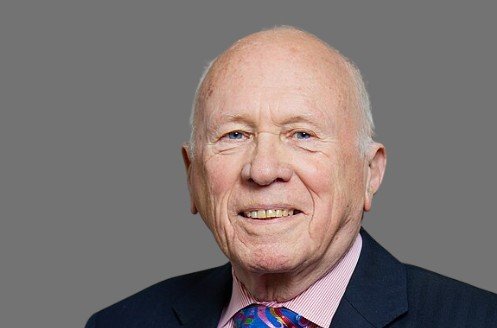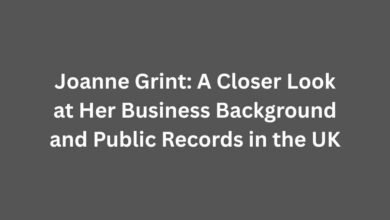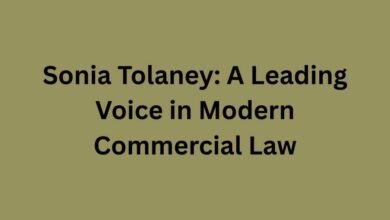Jeff Rooker: A Distinguished Journey in British Politics and Public Service

Jeff Rooker, formally known as Jeffrey William Rooker and later ennobled as Baron Rooker, was born on 5 June 1941 in Birmingham, England. His early years were spent in a post-war Britain that was rapidly reshaping its social and industrial landscape. From a young age, he demonstrated a keen interest in the mechanics of industry and the inner workings of society. This curiosity eventually led him to pursue studies in engineering and industrial relations. Rooker attended Aston University where he trained as a production engineer, a profession that gave him a first-hand understanding of the challenges faced by workers and the importance of efficient, practical solutions. Later, he furthered his education at the University of Warwick, earning a postgraduate degree in industrial relations.
Table of Contents
ToggleEarly Career and Move into Politics
Before entering the political arena, Jeff Rooker worked as a production engineer and later as a lecturer in engineering. These roles offered him not only practical experience but also a strong connection to the realities of British industry in the latter half of the twentieth century. His time as an educator nurtured his talent for explaining complex ideas clearly and persuasively, an ability that would serve him well in parliamentary debates. The turbulent political climate of the 1970s, with its debates over workers’ rights, inflation, and economic management, drew Rooker towards public service. He joined the Labour Party, seeing it as the political home most aligned with his values of fairness, social justice, and economic reform.
Parliamentary Career and the Rooker–Wise Amendment
Rooker was first elected to the House of Commons in the February 1974 general election as the Labour Member of Parliament for Birmingham Perry Barr. From the outset, he established himself as a politician of principle and practicality. One of the most enduring examples of his impact came in 1977 when he co-sponsored the famous Rooker–Wise Amendment, alongside fellow MP Audrey Wise. This amendment to the Finance Bill ensured that personal tax allowances were automatically linked to inflation, preventing what is known as “fiscal drag,” whereby rising inflation would otherwise erode the value of allowances and effectively increase taxation without a parliamentary vote. The amendment represented a landmark in protecting taxpayers and demonstrated Rooker’s ability to blend technical understanding with a commitment to fairness. It remains one of the defining achievements of his parliamentary career and is often cited as a textbook example of effective backbench influence.
Ministerial Roles in Government
Following years of committed work on the backbenches, Rooker was appointed to several key ministerial roles when Labour returned to power under Tony Blair in 1997. His portfolio was both varied and challenging. He served as Minister of State for Agriculture, Fisheries and Food, where he dealt with issues of food security, farming policy, and environmental management at a time when agriculture faced significant change. Later, he became Minister of State for Pensions, a role that allowed him to shape policies affecting millions of retirees and working families planning for the future.
After being elevated to the House of Lords in 2001 as Baron Rooker of Perry Barr, he continued his ministerial service on the Lords side of government. He took on responsibilities for Asylum and Immigration, Housing and Planning, and later Sustainable Food, Farming and Animal Health. Each position required a careful balance between strategic vision and pragmatic administration. Whether tackling the complex issues of immigration policy or championing the long-term sustainability of British agriculture, Rooker approached his work with a blend of technical insight and political skill.
Service in the House of Lords
As a life peer, Jeff Rooker embraced the opportunity to contribute to national debates from the red benches of the House of Lords. His presence brought a wealth of practical experience and a reputation for independent thinking. He served as Deputy Leader of the House of Lords from 2005 to 2008, providing leadership and ensuring the effective scrutiny of legislation. His tenure in the Lords was marked by a willingness to speak frankly and to challenge orthodoxies, whether within his own party or across the political spectrum. This independence of mind was further demonstrated when he later temporarily resigned the Labour whip while serving as Chair of the Food Standards Agency, ensuring the body maintained its reputation for impartiality and integrity.
Chairmanship of the Food Standards Agency
In 2009, Jeff Rooker was appointed Chair of the Food Standards Agency (FSA), a role that perfectly suited his expertise in both engineering and public policy. The FSA is a critical national regulator, responsible for ensuring the safety and integrity of the food supply. During his leadership from 2009 to 2013, Rooker steered the agency through debates about genetically modified foods, food labelling, and consumer protection. He was known for forthright remarks, at one point criticising opponents of GM foods for what he viewed as a lack of scientific understanding. His commitment to evidence-based policy and to transparent regulation reinforced the agency’s role as a trusted guardian of public health.
Political Style and Reputation
Throughout his long career, Jeff Rooker earned a reputation as a politician who combined technical competence with a willingness to speak his mind. Colleagues and journalists alike have noted his plain-speaking style, which sometimes sparked controversy but always made clear his dedication to public service. He was never content with mere party loyalty when it conflicted with evidence or principle. His career offers an example of how a politician can remain grounded in real-world experience while rising to the highest levels of government.
Personal Life and Values
Away from the political spotlight, Rooker’s personal life reflects the same grounded values that shaped his public career. He married Angela Edwards in 1972, and they shared many years together until her passing in 2003. Later, in 2010, he married Helen Hughes. Friends and colleagues describe him as a man of integrity and humour, someone who maintained strong ties to his Birmingham roots despite decades at the national level. His early career as an engineer and educator left him with a lifelong respect for practical problem-solving and for the dignity of skilled work.
Legacy and Continuing Influence
Jeff Rooker’s influence on British politics endures in both policy and example. The Rooker–Wise Amendment remains a key feature of the UK’s tax framework, ensuring that ordinary taxpayers are protected from hidden increases. His ministerial work across agriculture, pensions, immigration, and housing continues to shape policy debates. Moreover, his time as Chair of the Food Standards Agency underscored the importance of independent, evidence-based regulation in a world of rapidly evolving food technology. Younger politicians and public servants can look to his career as a model of how technical expertise and principled politics can be combined to lasting effect.
Conclusion
Jeff Rooker’s journey from a young engineer in Birmingham to a respected statesman in the House of Lords is a testament to dedication, integrity, and the value of practical knowledge in public life. He has demonstrated that politics, at its best, can be a tool for fairness and rational reform. His work in linking tax allowances to inflation, his leadership in critical ministerial posts, and his stewardship of the Food Standards Agency reflect a career committed to the public good. In an era when political discourse can often be polarised and superficial, the example set by Jeff Rooker stands as a reminder of the enduring power of informed debate, independent thinking, and the quiet determination to make government serve its citizens effectively and fairly.



